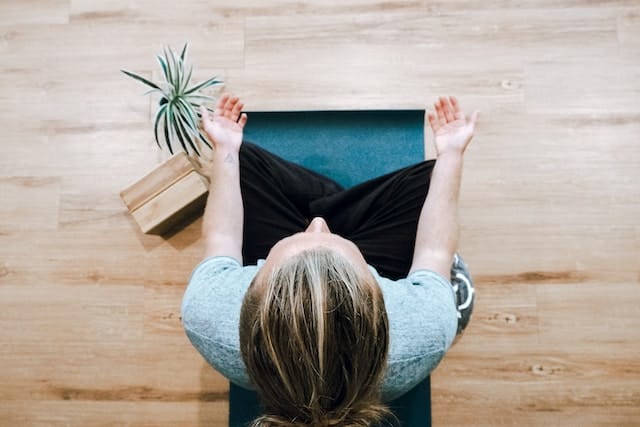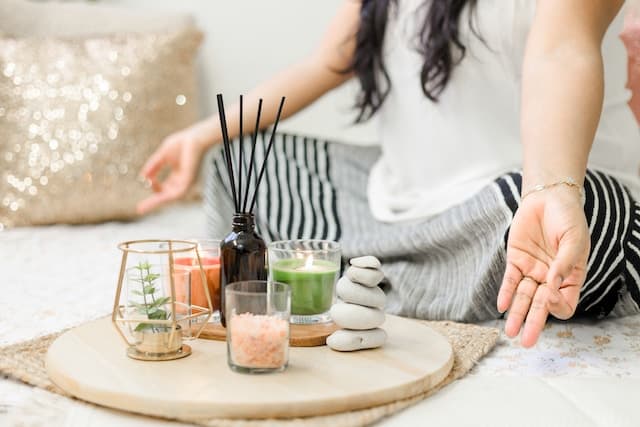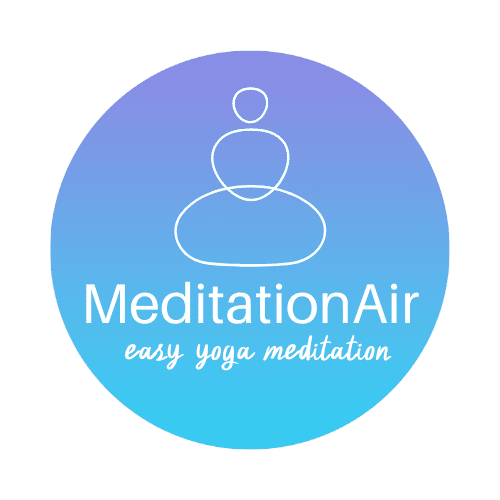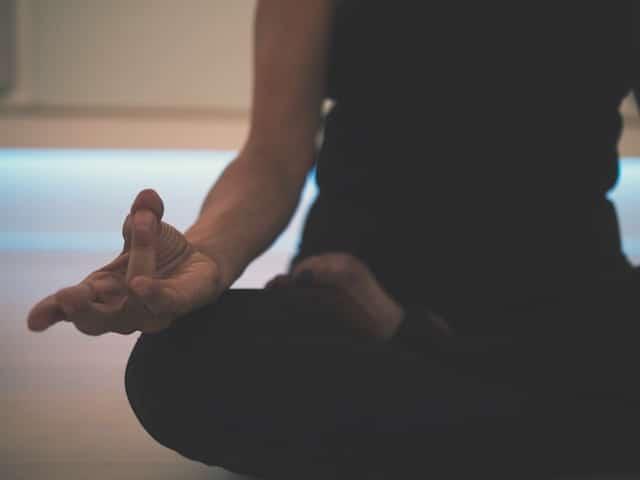Are you struggling to fall asleep at night due to anxiety? Are you constantly feeling stressed and overwhelmed? If so, you’re not alone.
Many people suffer from insomnia and anxiety, which can take a toll on both their physical and mental health. Fortunately, there is a simple and effective way to reduce stress and improve sleep: meditation.
Meditation has been shown to be a powerful tool for managing anxiety and insomnia. By practicing meditation regularly, you can learn to calm your mind and body, reduce stress and anxiety, and improve your overall well-being.
In this article, we’ll explore the benefits of meditation for insomnia and anxiety, as well as provide techniques for incorporating meditation into your daily routine and tips for successful meditation. Whether you’re new to meditation techniques or a seasoned practitioner, these tips and techniques can help you find peace, calm, and restful sleep.
Benefits of Meditation for Insomnia and Anxiety

You’re struggling to get a good night’s sleep and find peace of mind, but did you know there’s a natural solution that’s been proven to help? Keep reading to discover the surprising benefits of a simple practice that can transform your sleep and mental health.
Meditation is a powerful tool that can help you manage insomnia and anxiety. This ancient practice has been used for centuries as a means of promoting relaxation, reducing stress levels, and calming the mind.
One of the most significant benefits of meditation is its ability to reduce stress and anxiety. When you’re feeling anxious or stressed, your body releases a hormone called cortisol that can interfere with your ability to fall asleep. Meditation has been shown to reduce cortisol levels, thereby helping you to feel more relaxed and peaceful.
Moreover, meditation can help you to focus your mind on the present moment, which can be incredibly helpful for those who struggle with racing thoughts at night. Another benefit of meditation for insomnia is its ability to help you fall asleep faster. This is because meditation can help you to relax both your mind and body, making it easier to drift off to sleep.
In fact, a study published in the Journal of Sleep Research found that participants who practiced meditation for six weeks experienced significant improvements in their sleep quality and were able to fall asleep faster than those who did not meditate. So, if you’re looking for a natural way to improve your sleep, meditation might be just what you need.
As you can see, numerous benefits of meditation for those struggling with insomnia and anxiety. Now that you know the benefits of meditation for sleep and mental health, it’s time to learn some techniques for incorporating meditation into your daily routine.
With a little bit of practice and patience, you can start to experience the transformative effects of meditation in your own life.
Techniques for Incorporating Meditation into Your Daily Routine

If you’re serious about improving your well-being, it’s important to make meditation a part of your daily routine in a way that works for you. Finding the time to meditate can be a challenge, especially if you have a busy schedule. However, incorporating meditation into your daily routine doesn’t have to be difficult.
There are many techniques you can use to make meditation a regular part of your day. One technique is to set a specific time for meditation each day. This could be in the morning before you start your day, or in the evening before you go to bed. By setting a specific time for meditation, you’ll be more likely to stick to your practice.
Another technique is to start with just a few minutes of meditation each day and gradually increase the amount of time you meditate. This will help you build a habit of meditation without feeling overwhelmed.
Another technique for incorporating meditation into your daily routine is to find a quiet space where you can meditate without distractions. This could be a room in your home, a park, or a quiet corner of your workplace. By finding a quiet space, you’ll be able to focus on your meditation practice and reduce the chances of being interrupted.
Remember, it’s important to be patient and kind with yourself as you establish a regular meditation practice. With time and practice, you’ll find that meditation becomes easier and more enjoyable.
Tips for Successful Meditation
Picture yourself floating on a cloud of calmness and tranquility with these tips to elevate your meditation game.
The first tip is to find a quiet and comfortable place where you won’t be disturbed. This can be your bedroom, a quiet corner in your home, or even outside in nature. The key is to create a peaceful environment that will help you relax and focus.
The second tip is to set a specific time for your meditation practice. This will help you establish a routine and make it easier to incorporate meditation into your daily life. Whether it’s in the morning, during your lunch break, or before bed, pick a time that works best for you and stick to it.
Consistency is key when it comes to meditation.
Lastly, don’t be too hard on yourself if your mind starts to wander during your meditation practice. It’s completely normal and happens to everyone. The key is to acknowledge your thoughts and gently guide your focus back to your breath or mantra.
Remember that meditation is a practice, and like any skill, it takes time and patience to master.
With these tips, you’ll be on your way to a more peaceful and restful mind.
Frequently Asked Questions
Is meditation a replacement for medication when dealing with insomnia and anxiety?
Dealing with insomnia and anxiety can be incredibly challenging, and it’s no surprise that many people turn to medication for relief. However, it’s important to consider alternative options that may be just as effective, if not more so.
Meditation is one such option that has been proven to help alleviate symptoms of both insomnia and anxiety. By taking the time to focus on your breath and quiet your mind, you can reduce stress and promote relaxation, which can lead to better sleep and a calmer state of mind.
While it may not be a replacement for medication in every case, incorporating meditation into your daily routine can be a powerful tool in your journey towards better mental health.
Can meditation help with other sleep disorders besides insomnia?
You’ve tried everything under the moon to fix your sleep disorder – counting sheep, taking pills, and even sleeping with a stuffed animal.
But have you tried meditation? It may not be a magical cure-all, but it can certainly help with a variety of sleep disorders beyond insomnia.
Whether you’re struggling with sleep apnea, restless leg syndrome, or even night terrors, meditation can provide a sense of calm and relaxation that can improve the quality of your sleep.
Plus, it’s a natural remedy that won’t leave you with any pesky side effects. So why not give it a try? Your stuffed animal will thank you.
Can meditation have any negative side effects on mental health?
It’s understandable to have concerns about whether meditation can have any negative side effects on your mental health. However, it’s important to note that meditation is generally considered safe for most people.
While some individuals may experience uncomfortable emotions or sensations during meditation, these are often temporary and can actually be a sign of progress in the practice.
That being said, if you have a history of mental health concerns or are currently struggling with a mental health condition, it’s important to speak with a healthcare professional before starting a meditation practice to ensure it’s safe and appropriate for you.
How long does it typically take to see results from incorporating meditation into your daily routine?
When incorporating meditation into your daily routine, it’s important to remember that everyone’s experience is unique and there is no one-size-fits-all answer to how long it takes to see results.
However, on average, most people report feeling some positive effects within the first few weeks of consistent practice. This can include feeling more calm and centered, experiencing reduced stress levels, and improved focus.
It’s important to approach meditation with an open mind and to remain patient and consistent in your practice, as the benefits tend to compound over time. Remember, the journey of meditation is a personal one and with dedication and persistence, you’ll be able to reap the many rewards it can offer.
Can meditation be done at any time of day or is there a recommended time for maximum benefits?
If you’re wondering about the best time to meditate, the answer is simple: it’s whenever you can.
Meditation can be done at any time of day, and the benefits can be felt regardless of when you choose to practice.
However, if you’re struggling with insomnia or anxiety, it may be helpful to incorporate meditation into your bedtime routine. This can help calm your mind and body, making it easier to fall asleep and stay asleep.
Ultimately, the key is to find a time that works for you and stick with it consistently. Whether it’s first thing in the morning or right before bed, the important thing is to make meditation a regular part of your routine.
Conclusion
Congratulations on taking the first step towards improving your sleep and reducing anxiety. By incorporating meditation into your daily routine, you can experience a wealth of benefits, including better sleep quality, reduced stress levels, and improved overall well-being.
But remember, like any new habit, it may take time and practice to see the full benefits of meditation. Don’t get discouraged if you don’t see results right away. Stick with it and trust the process.
With consistency and dedication, you’ll soon find yourself sleeping better and feeling more relaxed and grounded throughout the day. So take a deep breath, close your eyes, and let the transformative power of meditation work its magic.


